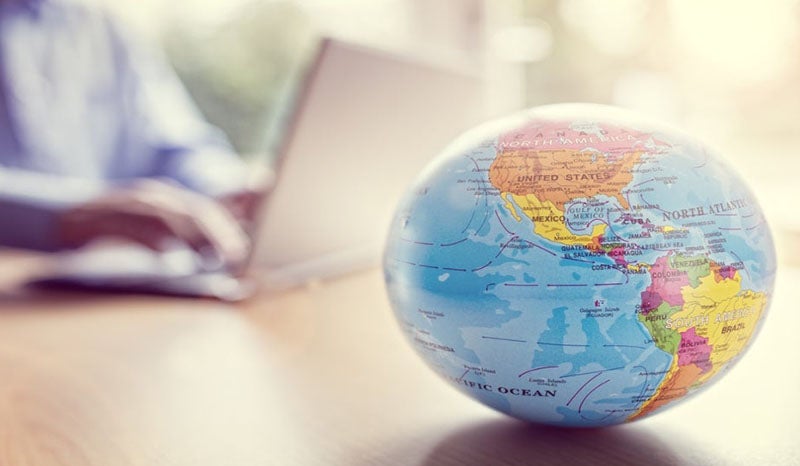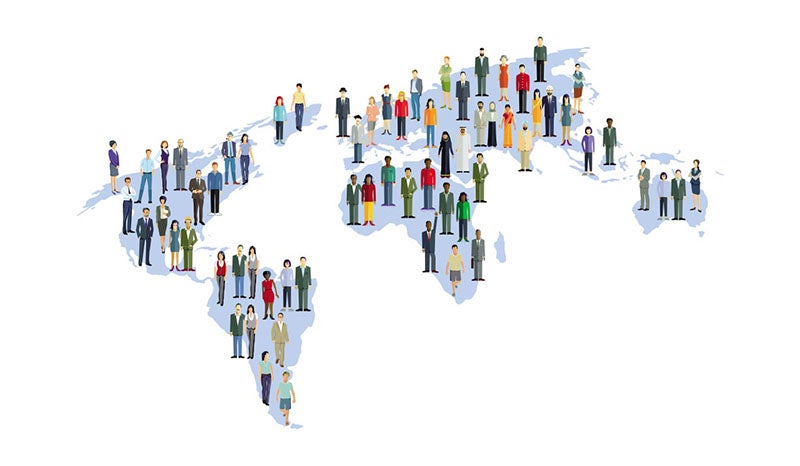Before we have breakfast, most of us have already interacted with the globalised world, simply by looking at our phones. We live in an interconnected world, and to be a great leader requires abilities that are continually evolving and changing, as our society does. Leadership is a skill that can be learned, and you can step up to become a global leader by adapting your thinking and actions in the following ways:
Recognising the value of cultural diversity
To be an effective leader in a globalised world, it’s necessary to go beyond a basic awareness of cultural diversity. Sensitivity to cultural diversity is about much more than acknowledging festive cultural days and eating local cuisine. While these things can matter, it’s your nuanced awareness of cultural differences that will make you a great leader.
Global leaders understand the distinction of cultural differences and work to engage with value other beliefs; promoting practices and harnessing opportunities that embrace all cultures. An effective leader is somebody that can adapt and understand the need for sensitivity when they find themselves in a situation with people from varying cultural backgrounds. A true leader recognises and respects diversity in religion, age, gender and sexual orientation.
Knowing what to look out for, and welcoming opportunities to engage with cultural diversity is essential for global leadership.
Develop global strategic thinking
Strategic thinking is more than your ability to recognise opportunities and identify potential problems. It’s about the way you analyse events, perceive trends and anticipate changes.
Volatility in the global economy is becoming the new normal. International relationships are being tested by Brexit, America’s relationship with China and the bold actions of state leaders. The trickle-down effects of issues like these don’t take long to arrive and can quickly impact how you conduct business directly or indirectly.
In a globalised world, there’s no point thinking strategically within the confines of your business, your state, or even your country. Global strategic thinking demands that you think globally and remain aware of what’s happening in the wider world, while still acting locally.
Master clear communication
Clear communication is an important skill to have when you are living and working internationally. While your hosts may be impressed that you can learn a few words in the local language, your team won’t be if your messages are unintelligible. If you’re working with interpreters, they’ll appreciate your ability to speak clearly and concisely.
It’s also important to remember the art of listening - the role of an effective leader is often to sit back and observe how people interact with each other and you.
Embrace lifelong curiosity
If you’ve read this far, you are showing the signs of a true global leader. Lifelong curiosity is a quality that can be found in great leaders like Jeff Bezos, Ariana Huffington, Bill Gates and Richard Branson. Simply asking ‘what have we learned’ and ‘how can we do it better next time’ are enough to spark improvements that could lead to better outcomes.
You have to feed your curiosity by reading widely, listening to podcasts and seeking education. Higher academic degrees can be undertaken online, in your own time and they’ll do much more than update your qualifications – they give you the inspiration and a legitimate excuse to indulge your curiosity.
Great leaders also bring lifelong curiosity to every conversation. Nelson Mandela was famous for his ability to make everyone he spoke to feel like the most important person in the room. He gave them his undivided attention, listened carefully and asked more questions than his audience ever got to ask him. Effective global leaders know that everyone has the wisdom to share if you’re willing to listen and ask questions.
Cultivate deep self-awareness
Your effectiveness as a leader can be determined by your ability to recognise the strengths and weaknesses of others. With this awareness, you can support, challenge and get the best performance out of your team. But what do you know about your own strengths and weaknesses?
Self- awareness requires a degree of honesty as well as the ability to accept feedback from others. What we believe we know about ourselves isn’t necessarily what the rest of the world sees in us. For example, a person that lacks self-awareness may become defensive when somebody voices an objective opinion that differs to their own.
Developing deep self-awareness gives you a clear understanding of your own beliefs and how they might differ from others.
With this knowledge, you’ll be better positioned to recognise and abide the strongly held beliefs of others – helping you to perform better in negotiations, meetings and every single conversation.
Prove your global leadership skills
Throughout your career, you’ve displayed leadership in small teams, on group assignments and in the way you’ve conducted yourself. Deakin University’s Master of Leadership gives you the opportunity to have that experience measured, acknowledged and recognised.
The course uses a unique Professional Practice credentialing process to recognise your existing abilities. The credentials create a portfolio of your leadership skills and enable you to complete a master’s degree faster. You’ll gain a deep self-awareness alongside leadership skills you can instantly apply in your current role.
While indulging your lifelong curiosity, the Master of Leadership focuses on global citizenship, communication, critical thinking and problem solving among others. Combined with your experience, this course contains all that you need for great leadership in a globalised world.
Learn more about the Master of Leadership online, our innovative Professional Practice degree where you can use your experience to gain a master’s degree. Call our enrolment team on 1300 043 524.




